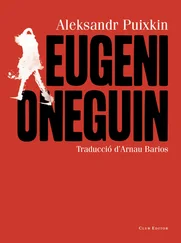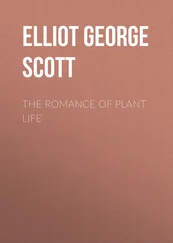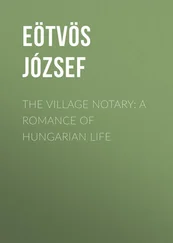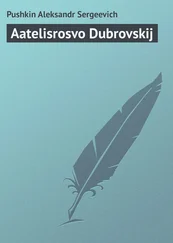Aleksandr Pushkin - Eugene Oneguine [Onegin]. A Romance of Russian Life in Verse
Здесь есть возможность читать онлайн «Aleksandr Pushkin - Eugene Oneguine [Onegin]. A Romance of Russian Life in Verse» весь текст электронной книги совершенно бесплатно (целиком полную версию без сокращений). В некоторых случаях можно слушать аудио, скачать через торрент в формате fb2 и присутствует краткое содержание. Год выпуска: 2007, Жанр: Поэзия, на английском языке. Описание произведения, (предисловие) а так же отзывы посетителей доступны на портале библиотеки ЛибКат.
- Название:Eugene Oneguine [Onegin]. A Romance of Russian Life in Verse
- Автор:
- Жанр:
- Год:2007
- ISBN:нет данных
- Рейтинг книги:4 / 5. Голосов: 1
-
Избранное:Добавить в избранное
- Отзывы:
-
Ваша оценка:
- 80
- 1
- 2
- 3
- 4
- 5
Eugene Oneguine [Onegin]. A Romance of Russian Life in Verse: краткое содержание, описание и аннотация
Предлагаем к чтению аннотацию, описание, краткое содержание или предисловие (зависит от того, что написал сам автор книги «Eugene Oneguine [Onegin]. A Romance of Russian Life in Verse»). Если вы не нашли необходимую информацию о книге — напишите в комментариях, мы постараемся отыскать её.
Eugene Oneguine [Onegin]. A Romance of Russian Life in Verse — читать онлайн бесплатно полную книгу (весь текст) целиком
Ниже представлен текст книги, разбитый по страницам. Система сохранения места последней прочитанной страницы, позволяет с удобством читать онлайн бесплатно книгу «Eugene Oneguine [Onegin]. A Romance of Russian Life in Verse», без необходимости каждый раз заново искать на чём Вы остановились. Поставьте закладку, и сможете в любой момент перейти на страницу, на которой закончили чтение.
Интервал:
Закладка:
EUGENE ONEGUINE [Onegin]:
A Romance of Russian Life in Verse
by
ALEXANDER PUSHKIN
Translated from the Russian by Lieut.-Col. [Henry] Spalding
PREFACE
Eugene Oneguine, the chief poetical work of Russia's greatest poet, having been translated into all the principal languages of Europe except our own, I hope that this version may prove an acceptable contribution to literature. Tastes are various in matters of poetry, but the present work possesses a more solid claim to attention in the series of faithful pictures it offers of Russian life and manners. If these be compared with Mr. Wallace's book on Russia, it will be seen that social life in that empire still preserves many of the characteristics which distinguished it half a century ago—the period of the first publication of the latter cantos of this poem.
Many references will be found in it to our own country and its literature. Russian poets have carefully plagiarized the English— notably Joukovski. Pushkin, however, was no plagiarist, though undoubtedly his mind was greatly influenced by the genius of Byron— more especially in the earliest part of his career. Indeed, as will be remarked in the following pages, he scarcely makes an effort to disguise this fact.
The biographical sketch is of course a mere outline. I did not think a longer one advisable, as memoirs do not usually excite much interest till the subjects of them are pretty well known. In the "notes" I have endeavored to elucidate a somewhat obscure subject. Some of the poet's allusions remain enigmatical to the present day. The point of each sarcasm naturally passed out of mind together with the society against which it was levelled. If some of the versification is rough and wanting in "go," I must plead in excuse the difficult form of the stanza, and in many instances the inelastic nature of the subject matter to be versified. Stanza XXXV Canto II forms a good example of the latter difficulty, and is omitted in the German and French versions to which I have had access. The translation of foreign verse is comparatively easy so long as it is confined to conventional poetic subjects, but when it embraces abrupt scraps of conversation and the description of local customs it becomes a much more arduous affair. I think I may say that I have adhered closely to the text of the original.
The following foreign translations of this poem have appeared:
1. French prose. Oeuvres choisis de Pouchekine. H. Dupont. Paris, 1847.
2. German verse. A. Puschkin's poetische Werke. F. Bodenstedt. Berlin, 1854.
3. Polish verse. Eugeniusz Oniegin. Roman Aleksandra Puszkina. A. Sikorski. Vilnius, 1847.
4. Italian prose. Racconti poetici di A. Puschkin, tradotti da A. Delatre. Firenze, 1856.
London, May 1881.
CONTENTS
Mon Portrait
A Short Biographical Notice of Alexander Pushkin
Eugene Oneguine
Canto I: "The Spleen"
Canto II: The Poet
Canto III: The Country Damsel
Canto IV: Rural Life
Canto V: The Fete
Canto VI: The Duel
Canto VII: Moscow
Canto VIII: The Great World
Mon Portrait
Written by the poet at the age of 15.
Vous me demandez mon portrait,
Mais peint d'apres nature:
Mon cher, il sera bientot fait,
Quoique en miniature.
Je suis un jeune polisson
Encore dans les classes;
Point sot, je le dis sans facon,
Et sans fades grimaces.
Oui! il ne fut babillard
Ni docteur de Sorbonne,
Plus ennuyeux et plus braillard
Que moi-meme en personne.
Ma taille, a celle des plus longs,
Elle n'est point egalee;
J'ai le teint frais, les cheveux blonds,
Et la tete bouclee.
J'aime et le monde et son fracas,
Je hais la solitude;
J'abhorre et noises et debats,
Et tant soit peu l'etude.
Spectacles, bals, me plaisent fort,
Et d'apres ma pensee,
Je dirais ce que j'aime encore,
Si je n'etais au Lycee.
Apres cela, mon cher ami,
L'on peut me reconnaitre,
Oui! tel que le bon Dieu me fit,
Je veux toujours paraitre.
Vrai demon, par l'espieglerie,
Vrai singe par sa mine,
Beaucoup et trop d'etourderie,
Ma foi! voila Pouchekine.
Note: Russian proper names to be pronounced as in French (the nasal sound of m and n excepted) in the following translation. The accent, which is very arbitrary in the Russian language, is indicated unmistakably in a rhythmical composition.
A Short Biographical Notice of Alexander Pushkin.
Alexander Sergevitch Pushkin was born in 1799 at Pskoff, and was a scion of an ancient Russian family. In one of his letters it is recorded that no less than six Pushkins signed the Charta declaratory of the election of the Romanoff family to the throne of Russia, and that two more affixed their marks from inability to write.
In 1811 he entered the Lyceum, an aristocratic educational establishment at Tsarskoe Selo, near St. Petersburg, where he was the friend and schoolmate of Prince Gortchakoff the Russian Chancellor. As a scholar he displayed no remarkable amount of capacity, but was fond of general reading and much given to versification. Whilst yet a schoolboy he wrote many lyrical compositions and commenced Ruslan and Liudmila , his first poem of any magnitude, and, it is asserted, the first readable one ever produced in the Russian language. During his boyhood he came much into contact with the poets Dmitrieff and Joukovski, who were intimate with his father, and his uncle, Vassili Pushkin, himself an author of no mean repute. The friendship of the historian Karamzine must have exercised a still more beneficial influence upon him.
In 1817 he quitted the Lyceum and obtained an appointment in the Foreign Office at St. Petersburg. Three years of reckless dissipation in the capital, where his lyrical talent made him universally popular, resulted in 1818 in a putrid fever which was near carrying him off. At this period of his life he scarcely slept at all; worked all day and dissipated at night. Society was open to him from the palace of the prince to the officers' quarters of the Imperial Guard. The reflection of this mode of life may be noted in the first canto of Eugene Oneguine and the early dissipations of the "Philosopher just turned eighteen,"— the exact age of Pushkin when he commenced his career in the Russian capital.
In 1820 he was transferred to the bureau of Lieutenant-General Inzoff, at Kishineff in Bessarabia. This event was probably due to his composing and privately circulating an "Ode to Liberty," though the attendant circumstances have never yet been thoroughly brought to light. An indiscreet admiration for Byron most likely involved the young poet in this scrape. The tenor of this production, especially its audacious allusion to the murder of the emperor Paul, father of the then reigning Tsar, assuredly deserved, according to aristocratic ideas, the deportation to Siberia which was said to have been prepared for the author. The intercession of Karamzine and Joukovski procured a commutation of his sentence. Strangely enough, Pushkin appeared anxious to deceive the public as to the real cause of his sudden disappearance from the capital; for in an Ode to Ovid composed about this time he styles himself a "voluntary exile." (See Note 4 to this volume.)
During the four succeeding years he made numerous excursions amid the beautiful countries which from the basin of the Euxine—and amongst these the Crimea and the Caucasus. A nomad life passed amid the beauties of nature acted powerfully in developing his poetical genius. To this period he refers in the final canto of Eugene Oneguine (st. v.), when enumerating the various influences which had contributed to the formation of his Muse:
Читать дальшеИнтервал:
Закладка:
Похожие книги на «Eugene Oneguine [Onegin]. A Romance of Russian Life in Verse»
Представляем Вашему вниманию похожие книги на «Eugene Oneguine [Onegin]. A Romance of Russian Life in Verse» списком для выбора. Мы отобрали схожую по названию и смыслу литературу в надежде предоставить читателям больше вариантов отыскать новые, интересные, ещё непрочитанные произведения.
Обсуждение, отзывы о книге «Eugene Oneguine [Onegin]. A Romance of Russian Life in Verse» и просто собственные мнения читателей. Оставьте ваши комментарии, напишите, что Вы думаете о произведении, его смысле или главных героях. Укажите что конкретно понравилось, а что нет, и почему Вы так считаете.











